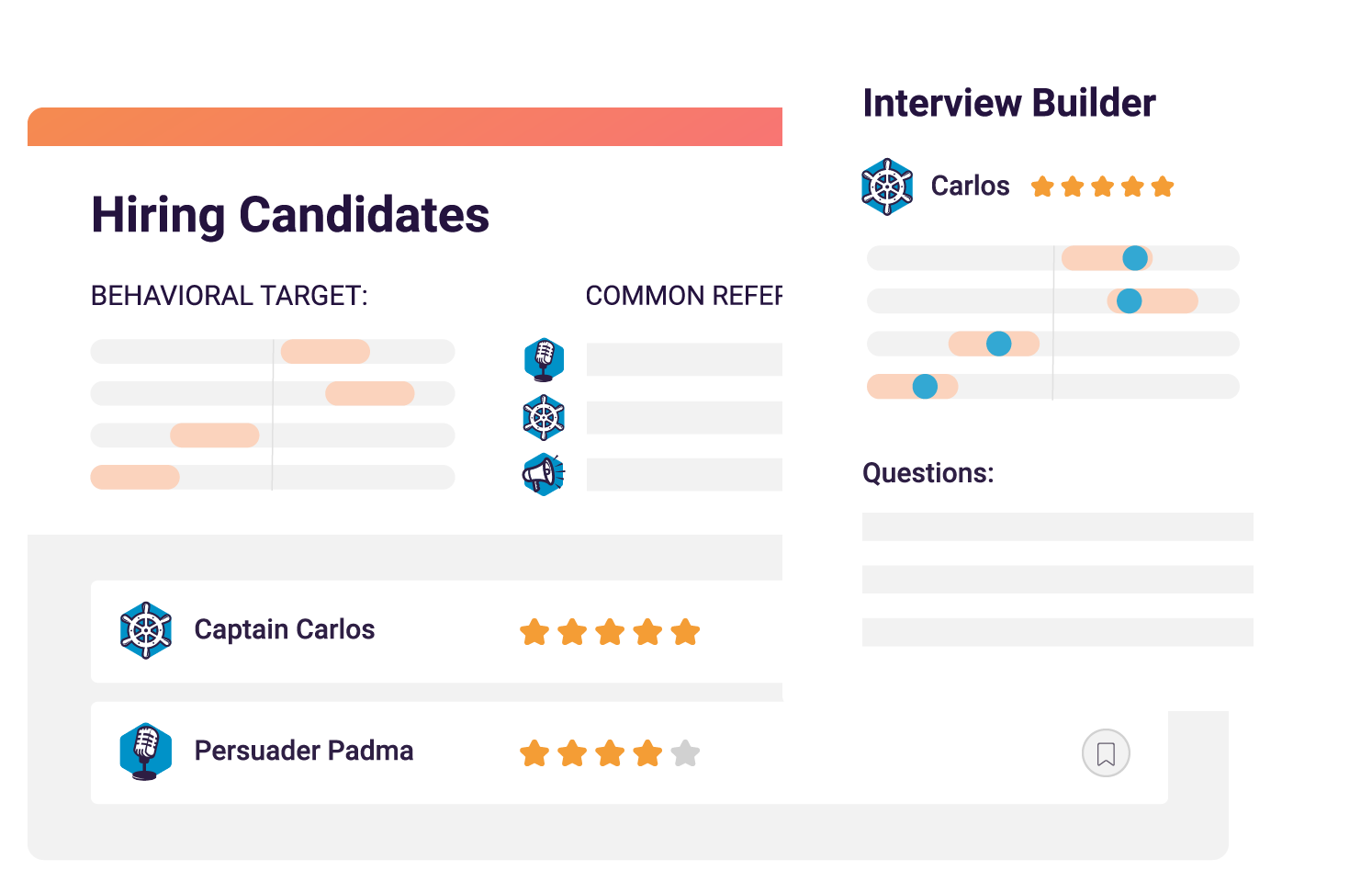One of the more frustrating feelings in life is wanting to be better at something but not knowing where to start. Even if you have a clear vision for your dream job or your ideal life, you still need to develop the skills necessary to achieve it, build the required discipline into your life, and set short- and long-term goals to make your vision a reality.
Many people either have no idea how to begin that journey of self-actualization or don’t think they’re capable of achieving what they want most. However, we’re all capable of strengthening our ability to execute with discipline and gradually build toward our goals.
Do you love the feeling of going to bed at night feeling fulfilled and knowing you made the best of our time that day? Of course, you do. If you’d like to feel that way more often, the key is to build your intellectual capacity.
Join 10,000 companies solving the most complex people problems with PI.
Hire the right people, inspire their best work, design dream teams, and sustain engagement for the long haul.
What is intellectual capacity?
Intellectual capacity is your ability to think, learn, plan, and execute with discipline. A helpful analogy is to think of it as your processor or operating system—building this capacity allows you to do more in less time and with less energy.
It sounds obvious but it’s true—a huge part of building your Intellectual Capacity is to believe that you can do it. High achievers are always looking for opportunities to learn more and improve themselves. They recognize that mistakes aren’t just a part of life, but an opportunity to learn. They understand that failing at something today is a necessary step toward mastering it in the future.
To improve, we need to understand what our weaknesses are. Some of that can be done by taking an honest look at ourselves, but often we need to turn to others. Think about the people in your life who know you well and who you can trust to be honest with you about your shortcomings. In some cases, you’ll receive feedback that will be difficult to hear, but part of capacity building means being open to feedback and using it to grow.

How do you build intellectual capacity?
Once you have a sense of what you’d like to improve, seek out the resources that will help. A great strategy is to pick a topic you want to learn more about, research the most respected books about that topic, purchase two or three—or check them out of a library—and set aside time to read them. Or, for a quicker download, research podcasts those authors have been on, listen to them, and learn their best points.
It’s a simple idea, but it’s a great way to upgrade your knowledge. Soon, you’ll find yourself handling these topics faster and smarter and making better decisions.
Set clear goals.
But intellectual capacity goes beyond your knowledge and ability to process information—it also involves setting clear goals that build toward your purpose and core values and moving toward them each day.
Do you have goals established for yourself? If you don’t, you need to. Just as a GPS can’t route you to a destination if you don’t know where you’re going, you can’t achieve your goals if you don’t have a clear idea of what they are.
Setting goals is an area where I’ve completely changed my approach. In the past, I would routinely set and accomplish year-long goals—only to find myself frustrated when those wins didn’t get me closer to what I wanted to achieve in my life.
The problem is that while achieving goals always feels like an accomplishment, they’ll only change the trajectory of your life if your quarterly and annual goals feed into your five- and 10-year goals.
My best advice for setting goals? Don’t just pick goals that sound impressive to the outside world. Make sure they’re aligned to what you want.
You can say you want to be CEO of a company as a lifetime goal, but if leading a business isn’t really your dream, you won’t be fulfilled when you get there. Maybe you really want to be painting on a farm in the countryside. It’s your life—don’t let others define success for you.
Focus on quality over quantity.
When it comes to setting goals, quality is far more important than quantity. If you set 100 goals for your life, you’ll probably hit a lot of them. But you’ll also be pulled in too many directions and may miss out on the most important ones. I’ve found it useful to set a small number of goals that are most important to me and push everything else to the side whenever possible.
I know I’ll feel most fulfilled by those few goals that are aligned with my core values, so that’s where I focus the majority of my time and energy. If I achieve all my most fulfilling goals, I’m confident I won’t be worrying about the less important ones.
Align your life with your goals.
Once you have your goals, it’s important to align your daily life with the pursuit of those goals. It was valuable for me to have a constant reminder of what I was pursuing in the long-term, so I created a tool called the Whole Life Dashboard. This tool is a combination of a self-actualization exercise and an accountability tracker—you can enter your top long-term goals and read them each day to stay aligned and on track.
Building your intellectual capacity isn’t a quick or easy process, but if you commit to making incremental progress each day, you’ll see significant results sooner than you think.
It’s natural to want to achieve something, but feel as though you lack the ability to do so. It’s vital to understand that every person is capable of building their intellectual capacity. If you take time to learn, set clear goals for yourself, and execute with discipline, you’ll find yourself on a path to what you really want.
Bob Glazer is the founder and CEO of global performance marketing agency Acceleration Partners. He’s also the writer of the popular Friday Forward series and author of Elevate: Push Your Limits and Unlock Success.








